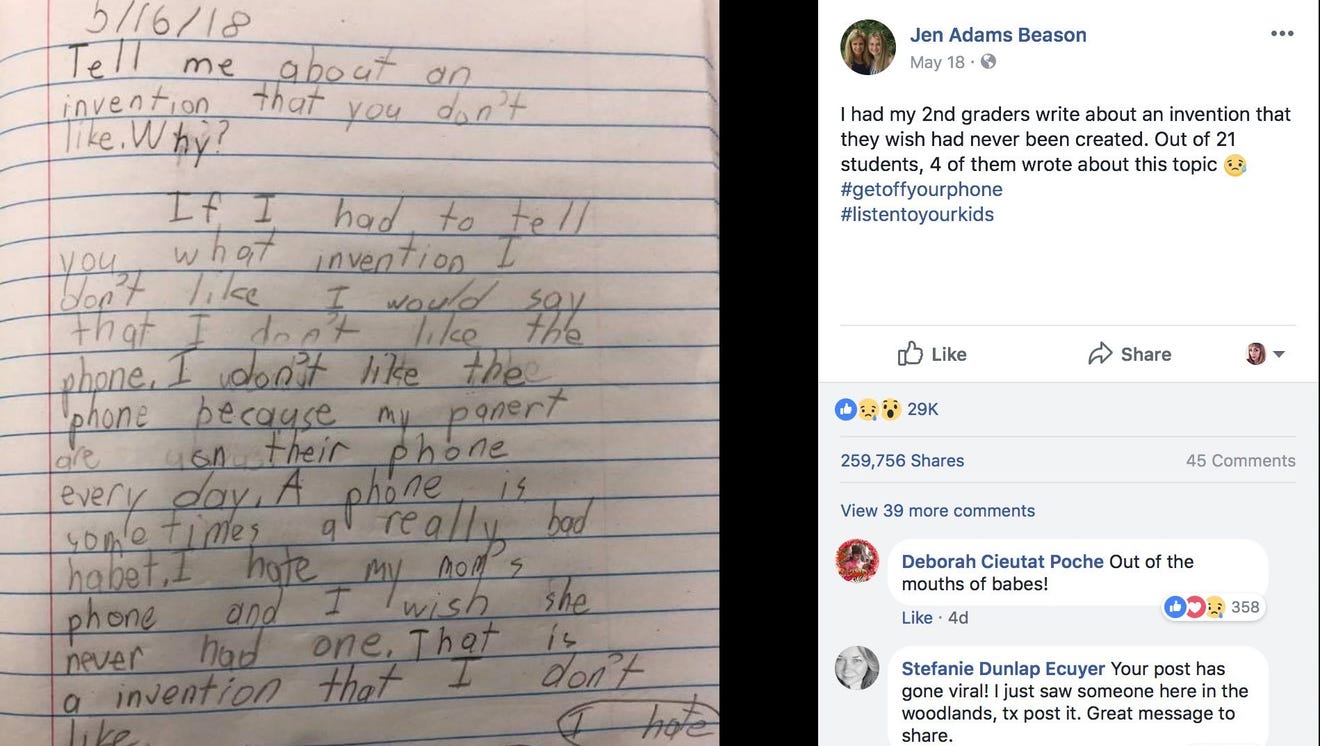According to recent research conducted by the Genius of Play, parents spend an average of just 24 more minutes with their kids than with their screens each day.
Oof.
It may feel like a punch to the gut, and if it does—good. The research is serving its purpose in getting parents to take a good long look at their personal screen time and, hopefully, make some serious adjustments.
For several years, we’ve been on high alert regarding our kids and the time they spend devouring screen time like it’s a life essential like air or food. But often because this generation of parents wasn’t raised in the tech-saturated world our kids were born into, we think we’re exempt—even untouchable—from the powerful draw of the smart device.
But study after study shows us otherwise.
Did you know that the average smart phone user unlocks their phone 150 times per day? That’s not just Insta-obsessed teens we’re talking about. Parents are just as guilty. Also, 75% of mobile phone users admit to sleeping with their phone and taking it to the bathroom with them. We’re in a constant state of nomophobia and it isn’t good.
For us, or our kids.

At least 50% of kids have said that they’ve had to ask their parent to put down their phone to get the attention they needed. For many children, that continual lack of attention and focus has the same effect as the Still Face Paradigm. Remember those old experiments from the 1970s where a mother was placed in front of her infant but wasn’t allowed to react, respond, or even change her facial expression when her baby babbled, begged, and even bawled at her? The results showed that a straight-faced mother can have a disturbing effect on her child, even to the point of withdrawn hopelessness and a lack of curiosity about the world around her. Those experiments are heartbreaking to watch.
But our kids are experiencing that phenomenon daily—begging us in various ways to react to their inherent needs and developing mental, emotional, and social understanding. But we sit, stone-faced, staring at our screens instead.

It’s as if our children are constantly having to compete for our attention, only it’s not another human being their competing against—it’s a device. And they’re crying out: Please! Look up at me!
Thankfully, more and more of us are recognizing and changing our own bad habits and working to instill better ones in our families.
Even authors are putting out resources to help us see the negative (and positive!) impact our screen time behaviors have on our kids.
Denise D’Angelo Roland wrote the new book, Please, Look Up at Me in order to help families broach the subject of screen time and start discussions on how to create healthier habits together.
Who would have thought just a couple decades ago that these were the kinds of books we’d need in order to parent our kids, but with a changing world comes new responsibilities and constant evaluation of our tech habits. But no matter how the world changes, people’s needs remain essentially the same.








Leave a Reply